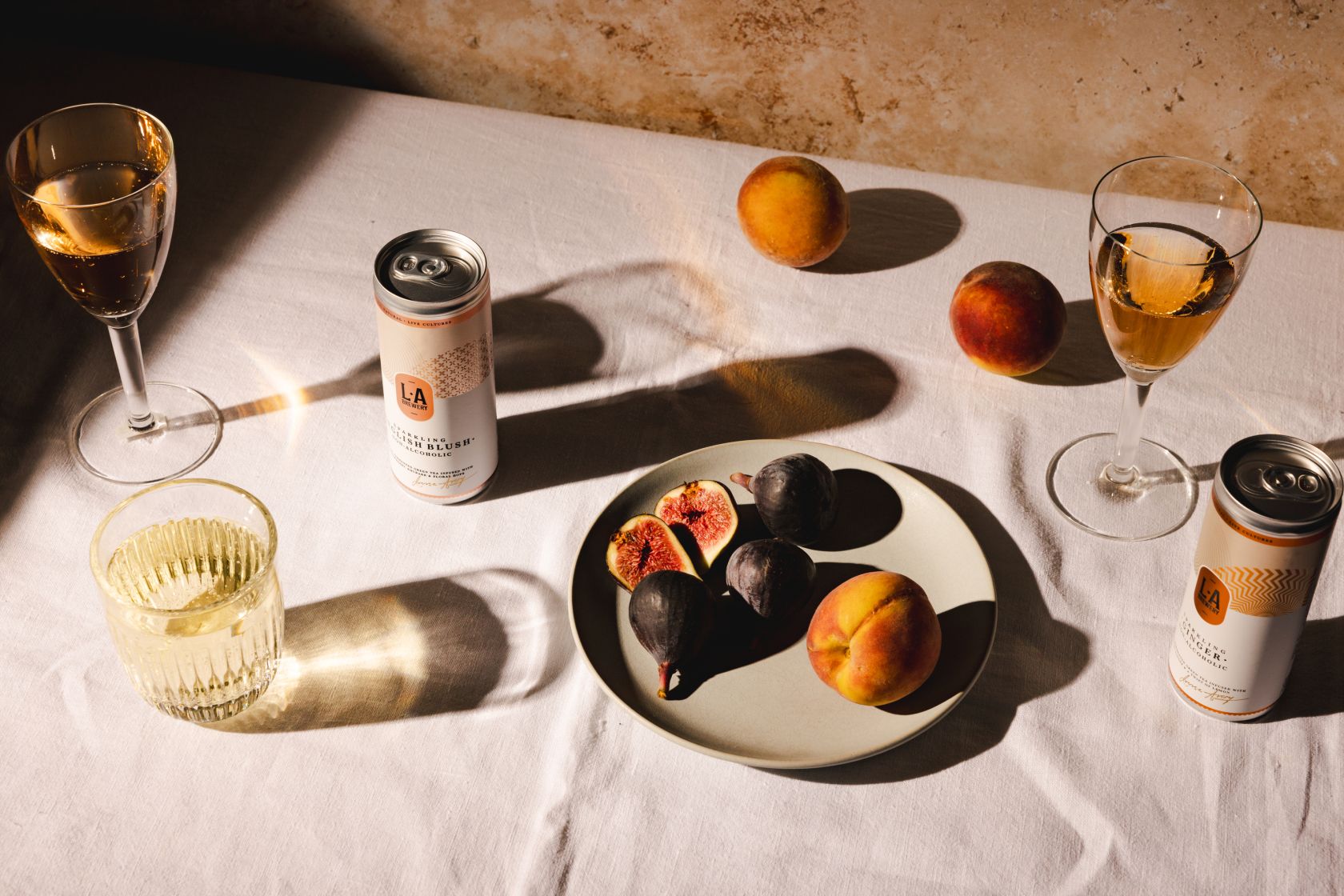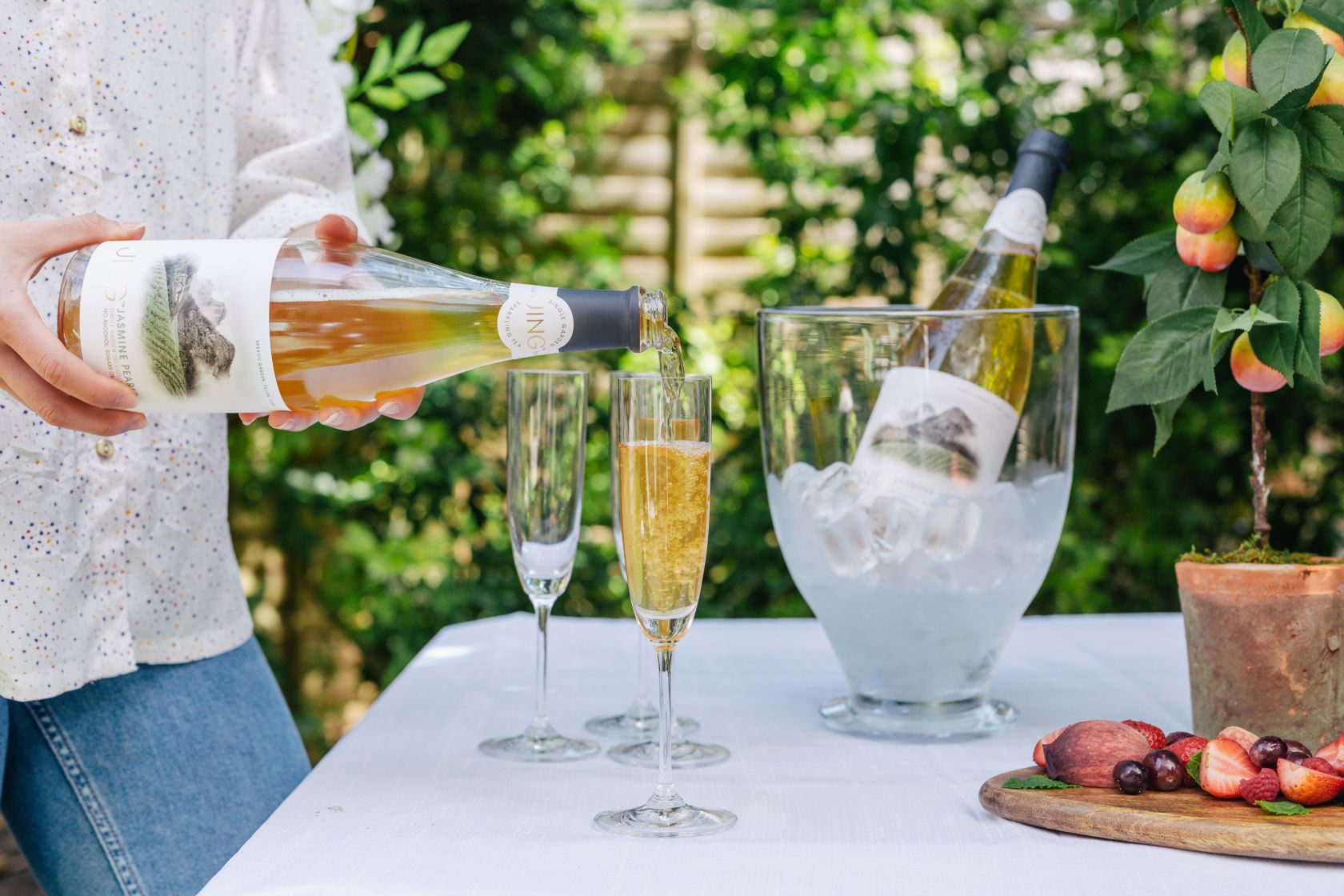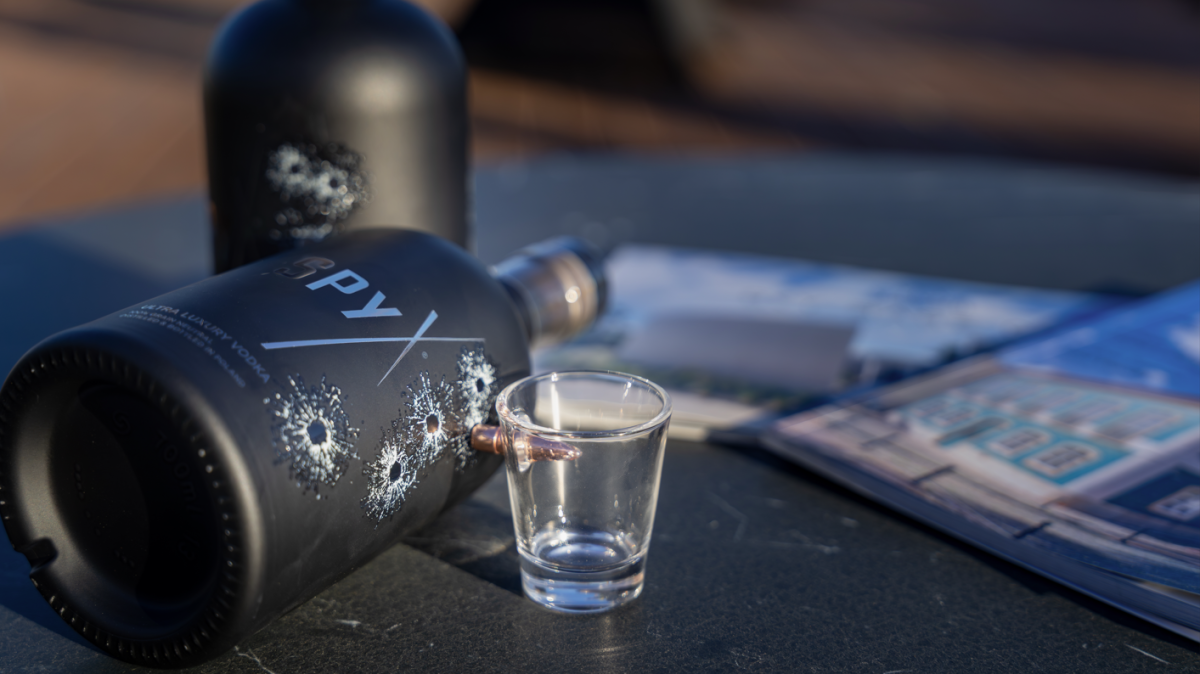Hence L.A. Brewery, which produces a range of non-alcoholic sparkling teas to be drunk whenever you’d ordinarily quaff a bottle of sparkling wine, be it with dinner or at aperitivo time.
But what are sparkling teas exactly? And is it the same as kombucha? “Sparkling tea covers drinks that are wine proxies. They’re served in a wine or champagne bottle, and can be unfermented or fermented, but primarily tea is the base, and then it’s often mixed with fruits and botanicals,” explains Avery, noting that kombucha is largely considered a “soft drink alternative” rather than a wine substitute.

“Where wine uses grapes, sparkling tea uses tea and there are a huge number of varietals,” she explains. “For instance, if you use black Assam tea leaves, you could go more towards ciders. You can make teas that taste more like beer or champagne, depending on the varietals you use.”
And some producers do add kombucha cultures for flavour. “Kombucha can be part of the base, but the end product resembles something much closer to a wine, often much less sweet,” notes Avery. “They can really lean into the tannins of the black tea or the finer flavours of the green tea.”

As a result, the price tag tends to hover around the same price as you’d pay for a bottle of wine. “Sparkling teas are not straightforward and people think, because it’s tea, it should be cheap, and that’s very far from the truth,” says Avery. “It’s going through a very fine process, which is as complex as making alcohol. There is a huge amount of skill and craft involved.”
But don’t let that put you off. “In Britain the main thing is builders’ tea and the odd Earl Grey, but there’s a whole world of taste out there, and it’s worth trying,” encourages Avery. “It’s very far from that milky, muddy drink people love. Be adventurous!”











